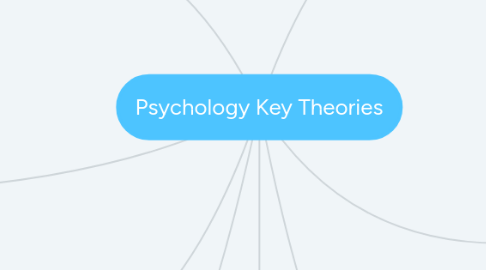
1. The Life Span approach
1.1. Erikson
1.1.1. Viewed development over the entire life span and proposed 8 stages to development. Each stage stage comes with a developmental task to be resolved.
1.1.1.1. 1. Trust vs. Mistrust
1.1.1.2. 2. Autonomy vs. Shame and doubt
1.1.1.3. 3. Initiative vs. Guilt
1.1.1.4. 4. Industry vs. Inferiority
1.1.1.5. 5. Identity vs. Role confusion
1.1.1.6. 6. Intimacy vs. Isolation
1.1.1.7. 7. Generativity vs. Stagnation
1.1.1.8. 8. Integrity vs, Despair
2. The Behaviourist approach
2.1. Skinner
2.1.1. Respondent behaviour
2.1.1.1. Speaks to the response to a known stimulus. This respondent behaviour can also be learned.
2.1.2. Operant behaviour
2.1.2.1. This type of behaviour is determined by the consequences of the behaviour. The consequences determine the likeliness of the behaviour to be repeated in the future.
2.1.2.1.1. Positive reinforcements: Strengthen behaviour
2.1.2.1.2. Negative reinforcements: Discourage behaviour
3. The Trait approach
3.1. Cattell
3.1.1. Was interested in how traits could be used to determine someone's behaviour in a particular situation. Distinguished two types of traits.
3.1.1.1. Surface Traits
3.1.1.2. Source Traits
4. The Cognitive approach
4.1. Kelly
4.1.1. Identified cognitive structures important to personality; Personal constructs. These are representations of the world that a person uses to make sense of their world and to anticipate the future.
4.1.2. His proposed Corollaries state that people have a tendency of expecting things to happen the same way as the past.
5. Five Factor Model of personality
5.1. Openness to experience; Conscientiousness; extraversion; agreeableness; and nueroticism
6. The Psychoanalytic approach
6.1. Freud
6.1.1. Structure of personality
6.1.1.1. Id
6.1.1.1.1. Entirely unconscious and operates on the pleasure principle
6.1.1.2. Ego
6.1.1.2.1. Operates on the reality principle. Satisfies the Id's needs in a socially appropriate way.
6.1.1.3. Superego
6.1.1.3.1. Internal moral code and leads to the development of the ego-ideal.
6.1.2. Psychosexual stages
6.1.2.1. Oral stage
6.1.2.1.1. Erogenous zone is the mouth. The child must get used to food other than its mothers milk or the bottle.
6.1.2.2. Anal stage
6.1.2.2.1. Erogenous zone is the anus. Resolution of toilet training needs to occur.
6.1.2.3. Phallic stage
6.1.2.3.1. Development now moves to the genital region. The Oedipus complex and the Electra complex are tasks that need to be resolved.
6.1.2.4. Genital stage
6.1.2.4.1. Erogenous zone is the genital area. Intimate relationships need to be established, learning to work and postponing gratification.
7. The Neopsychoanalytic approach
7.1. Jung
7.1.1. Viewed the mind as having 3 parts namely: ego which is the conscious, personal unconscious where repressed experiences are found and the collective unconscious where archetypes lie.
7.1.1.1. Archetypes
7.1.1.1.1. 1. Persona: How a persona presents themselves to society
7.1.1.1.2. 2. Shadow: Social desires and emotions which are unacceptable to society or to the person.
7.1.1.1.3. 3. Anima: Feminine part of males
7.1.1.1.4. 4. Animus: Male part of females
7.1.1.1.5. 5. Self: Represents the attempt to unify all the different aspect of personality and controls the expression of different personality parts at different times.
8. The Humanistic approach
8.1. Maslow
8.1.1. Deficiency needs
8.1.1.1. Physiological needs: food, oxygen, sleep and sex
8.1.1.2. Safety needs: organised and stable environment
8.1.1.3. Belongingness and love needs
8.1.1.4. Esteem Needs
8.1.2. Growth needs
8.1.2.1. Self-actualisation needs
9. The Social Learning approach
9.1. Bandura
9.1.1. Views behaviours as altered by observing others and modelling behaviour. Proposed four processes that govern behaviour.
9.1.1.1. 1. Attentional processes
9.1.1.2. 2. Retention processes
9.1.1.3. Motor reproduction processes
9.1.1.4. Motivational processes
9.1.2. Saw other reinforcements that affect observational learning
9.1.2.1. Vicarious reinforcement
9.1.2.2. Self-reinforcement

